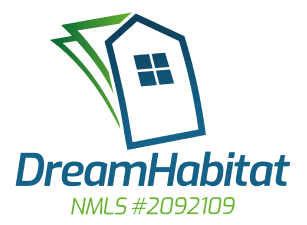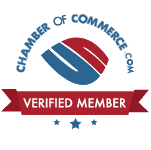
The Opportunity You’re Missing
The real estate landscape is shifting fast.
Over 10% of the U.S. workforce is now self-employed, representing nearly 16 million Americans. These clients often have strong income, assets, and credit, but get rejected by traditional lenders.
While many agents avoid these complex cases and focus only on W-2 buyers, forward-thinking Realtors are discovering that self-employed buyers represent one of the most profitable yet underserved market segments in residential real estate.
Imagine working with a marketing consultant earning $180,000 but reporting only $90,000 on taxes due to business deductions. Or a contractor earning $250,000 but with fluctuating seasonal income. These are not unqualified buyers — they simply don’t fit into conventional underwriting boxes.
According to the National Association of Realtors, 47% of agents lose deals due to financing complications, and self-employed clients represent a big share of those failures. But with the right knowledge and mortgage partners, these “impossible” files can become your most profitable deals.
The Self-Employed Mortgage Challenge
The Documentation Maze
W-2 employees need just a few pay stubs and a tax return. Self-employed borrowers often face much more:
- 2 years personal & business tax returns
- Profit & Loss statements
- 12-24 months of bank statements
- Business licenses, CPA letters, 1099 forms
- Client contracts, invoices, financial projections
For many self-employed clients, gathering all these documents is not only difficult — it’s often incomplete or inconsistent. This makes traditional underwriting extremely rigid.
Income Calculation Problems
Traditional underwriting uses the lower of the last two years of income. For growing businesses or seasonal income, this can seriously underestimate earning power.
For example: A consultant earned $70,000 in year one, $130,000 in year two, and is on pace for $180,000 now. Conventional lenders would still base her mortgage on the $70,000 figure.
The Cash Flow vs. Tax Return Dilemma
Smart business owners minimize taxable income through deductions, depreciation, and reinvestments. While this helps with taxes, it artificially lowers the income shown to lenders, even though real cash flow remains strong.
Why Realtors Should Embrace This Market
Reduced Competition
Few agents specialize in helping self-employed buyers. If you learn this market, you instantly differentiate yourself in a crowded field.
Higher Transaction Values
Many self-employed clients are high-net-worth individuals: entrepreneurs, business owners, consultants, and contractors. They purchase higher-priced homes, buy investment properties, and may relocate multiple times as their businesses grow.
Strong Referral Networks
Business owners often refer other business owners. Solving one complex financing problem can open doors to many additional clients through professional networks.
Recession-Resistant Clients
Self-employed individuals often adapt faster during economic downturns. Many continue to generate income even when W-2 workers face layoffs.
Valuable Expertise
Mastering these deals will also help you close difficult traditional deals. Your reputation grows as the agent who gets complicated files closed.
5 Mortgage Solutions to Close More Self-Employed Deals
1. Bank Statement Loans
Rather than relying on tax returns, lenders review 12-24 months of personal or business bank statements to calculate average monthly deposits.
Ideal for:
- Contractors with heavy tax deductions
- Cash-heavy businesses (restaurants, freelancers, e-commerce sellers)
- Seasonal income earners
Success tip: Encourage clients to consolidate income into one business account before applying.
2. Profit & Loss Statement Loans
Use recent 12-month P&L statements (CPA-prepared) to qualify borrowers, focusing on real-time business performance rather than older tax returns.
Ideal for:
- Growing businesses with upward income trends
- Seasonal businesses showing strong recent growth
3. DSCR Loans (For Investors)
Debt Service Coverage Ratio loans qualify real estate investors based on property income, not personal income.
Ideal for:
- Full-time investors
- Retirees with rental portfolios
- Self-employed individuals diversifying into real estate
4. ITIN Financing Programs
Available for foreign nationals and legal U.S. residents without Social Security Numbers.
Ideal for:
- Foreign investors
- Visa holders
- Individuals building U.S. credit history
5. Non-QM (Non-Qualified Mortgage) Programs
Highly flexible programs for complex or unconventional income situations, asset-based loans, alternative income streams, or credit challenges.
Ideal for:
- Retirees with high assets but low income
- Crypto traders, gig workers, international income earners
- Complex corporate ownership structures
How to Choose the Right Mortgage Partner
- Choose lenders specializing in self-employed/non-QM loans.
- Evaluate underwriting flexibility.
- Prioritize lenders using modern technology for document processing.
- Demand clear communication throughout the transaction.
- Vet their speed, reliability, pricing, and program variety.
- Request references from other Realtors with self-employed clients.
Añadir un diseño con una foto de Germán y que diga esta frase

Frequently Asked Questions (FAQ)
Can self-employed buyers qualify for a mortgage?
Yes. Specialized mortgage programs allow many self-employed buyers to qualify despite not meeting traditional income documentation requirements.
What documents are typically needed for self-employed mortgage loans?
Bank statements, P&L statements, tax returns, CPA letters, business licenses, 1099s, client contracts, and alternative credit sources depending on the loan type.
Are mortgage rates higher for self-employed borrowers?
Not always. While Non-QM products may have slightly higher rates, strong borrowers often access highly competitive terms.
Why should real estate agents focus on self-employed buyers?
Because it’s an underserved, high-value client segment with strong referral potential and less competition.
What loan programs are best for self-employed clients?
Bank Statement Loans, P&L Loans, Non-QM Programs, DSCR Loans for investors, and ITIN Financing for foreign nationals.
Conclusion & Next Steps
The self-employed buyer market is one of the greatest growth opportunities in real estate today. Over 16 million Americans fall into this category, and most conventional lenders are still failing them.
You now have the roadmap to help these clients: specialized mortgage solutions, trusted lending partnerships, and Realtor positioning that separates you from your competition.
Every rejected self-employed buyer in your market is a lost commission for someone who doesn’t understand this niche. But for you, it can be the start of building long-term, recession-resistant business growth.
If you want to review specific self-employed client scenarios or learn how we help real estate agents close more of these deals every month, schedule a free strategy call today.
Schedule your free strategy session here
The opportunity is massive. The competition is minimal. The time to act is now.







